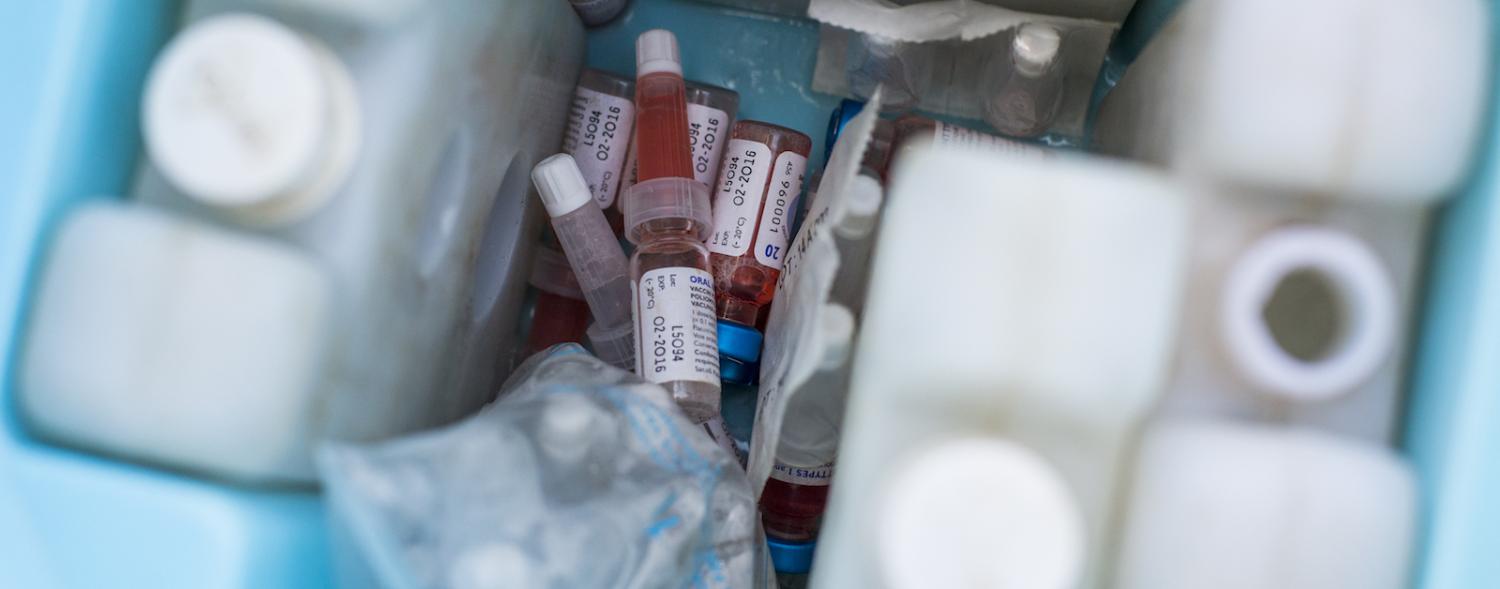How do you get a policymaker who has professed their scepticism about the value of global health programs to support them?
The US government is responsible for roughly one-third of all global health aid, significant cuts could have effects on the entire global health system.
In the case of the Trump administration, it might be by appealing to his concerns about national security – but this sort of move raises its own potential problems.
Over the past generation, global health has received a lot more attention and a lot more funding. These funds have supported interventions for diseases such as HIV/AIDS, malaria, Ebola, Zika, and polio. The Institute for Health Metrics and Evaluation has recorded that the international community provided $7.56 billion (in 2017 US dollars) in global health aid in 1990. By 2017, that figure had jumped to $37.42 billion.
Although the number of donor states has increased and an increasing number of non-governmental organisations and philanthropic groups (most notably, the Bill and Melinda Gates Foundation) are providing health resources, the US government has consistently ranked as the largest single source of global health funding. It is responsible for roughly one-third of all global health aid, meaning that significant cuts by the US government could have large effects on the entire global health system.
But big cuts to global health aid are exactly what the Trump administration has advocated.
Even before he took office, Trump described himself as a “germaphobe” and expressed doubts about the importance of global health issues. He famously took to Twitter during the Ebola outbreak in West Africa, calling for a ban on flights from the region to the US and saying that health care workers who fell ill “must suffer the consequences.”
Ebola patient will be brought to the U.S. in a few days - now I know for sure that our leaders are incompetent. KEEP THEM OUT OF HERE!
— Donald J. Trump (@realDonaldTrump) August 1, 2014
His aides circulated a questionnaire to the Departments of State and Defense, asking whether PEPFAR (the President’s Emergency Program for AIDS Relief) was “worth the investment when there are so many security concerns in Africa”.
His first budget proposal called for cutting global health aid by $2.2 billion, including zeroing out support for birth control in developing countries, reducing international HIV/AIDS funding by 17%, and eliminating $81 million in malaria funding. He later sought to reduce the funding for the Global Health Security Agenda by two-thirds.
So far, Congress has resisted Trump’s attempts to cut this funding. Global health is one of the rare areas in American politics that tends to have bipartisan support. This is fortunate for the international community as a whole, but the fact that the American president places so little value on global health programs and has repeatedly proposed the slashing of funding has caused concern for the global health system.
Is there any way to get Trump on board with global health? Securitization may provide an opportunity to do so – but it comes at a potential cost.
Securitization refers to how an issue is conceived of as a security threat. No issue is naturally a security issue. Rather, issues become security issues through political processes. It is about how an issue is framed, and how that frame then guides the policy response. For example, if terrorism is described as a national security threat, that leads to a different sort of response than if it is described as a law enforcement issue.
Securitization has played an important role in bringing attention to global health issues.
In 2000, the US government’s National Intelligence Council outlined how infectious diseases posed a threat to international security because it threatened to weaken key states, undermine military strength, and depress economic growth. Similarly, the United Nations Security Council devoted a special session to HIV/AIDS – the first time it had ever focused on a health issue – because it believed that the disease’s spread could undermine international security and required extraordinary international efforts to combat it.
By framing disease as a security threat, it got the attention of governments and marshalled international support for putting health issues high on the international agenda.
These same dynamics could potentially work with the Trump administration. If the US government sees the spread of disease as something that could undermine national and international security, then it may be convinced to support global health programs. Securitization could give it the rationale for trying to address problems “over there” before they arrive in the US, lending some logic to a proactive stance.
This all sounds great, right? Well, not quite.
Securitization brings its own risks with it. It can encourage an “us-versus-them” mentality because it sends the message that there is an enemy out there attacking us or causing us problems. “We” must protect ourselves against the threat from “them.” Security also tends to be tied to the military, but the military’s effectiveness in global health matters is unclear. It can also distort the political agenda. HIV/AIDS gets far more money than tuberculosis, even though far more people contract malaria every year, in part because HIV/AIDS is seen as a security threat in ways that malaria is not. (See an expanded discussion of these issues: The securitization of health in Trump era)
Encouraging the Trump administration to see global health as a security issue could end up backfiring, leading to scapegoating, or encouraging the government to see people from other countries as bringing disease.
The lack of American leadership on global health issues could have dramatic effects on the international community’s ability to respond. Trump may not show much interest in these matters, but it is vital that we continue to advocate for continued support.
